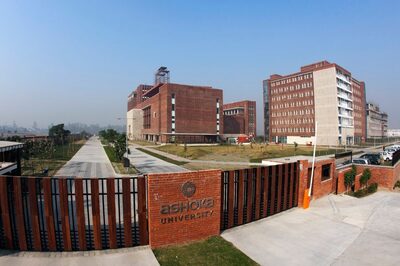
views
As India commemorates its 77th Independence Day, the nation’s emphasis on digital infrastructure as a catalyst for economic growth has never been more pronounced. The integration of digital technology has the potential to bridge the digital divide, enhance access to critical services such as education and healthcare, and create new avenues for businesses and entrepreneurs.
Speaking to News18, Jagdish Mitra, the Chief Strategy Officer & Head of Growth at Tech Mahindra, highlighted the pivotal role of the Digital India framework in guiding digital transformation across industries such as manufacturing, logistics, healthcare, BFSI, retail, education, and agriculture.
“To accomplish the ambitious goal of establishing a $1 trillion digital economy, intensified efforts and investment in digital transformation are crucial. The strategic approach of building a ‘Digital Aatmanirbhar Bharat‘ necessitates the infusion of next-generation technologies such as data analytics, cloud platforms, AI/ML, Metaverse, cybersecurity, and automation across all sectors,” he added.
Mitra stressed on the importance of continuous research and development to fuel India’s digital evolution, underscoring the potential to achieve socioeconomic growth through effective policy initiatives and skill development.
Arvind Bali, the CEO of Telecom Sector Skill Council (TSSC), emphasised the transformative power of 5G technology in shaping India’s digital revolution. According to him, with its unparalleled speed, improved performance, and low latency, 5G has the potential to redefine connectivity and open doors for innovation.
“The industry’s focus on skilling and upskilling the potential workforce is pivotal and can effectively help to develop, manage, and innovate within the digital landscape, attracting investments and enhancing India’s global competitiveness. TSSC’s focus on bridging the skill gap and fostering inclusivity aligns with the goal of facilitating a faster rollout of 5G connectivity across urban and rural areas,” he said.
Meanwhile, Dr Nilanjan Banik, Professor of Economics and Finance at Mahindra University, underscored the transformative impact of digital public infrastructure on India’s economy. “The convergence of Jan Dhan, Aadhaar, and mobile (JAM) has revolutionized access to services and economic opportunities. Just as physical infrastructure reduces the cost of doing business, digital public infrastructure has democratized access to opportunities, removing barriers and promoting inclusivity,” he said.
Sujit Patel, MD and CEO of SCS TECH, highlighted the expanding role of digital technology in sectors such as healthcare, agriculture, fintech, and education. Patel discussed the concept of Digital Public Infrastructure (DPI), comprising open and interoperable systems that foster economic growth.
“In 2015, the umbrella program Digital India was started. In the last three years, there has been a 200 percent increase in rural internet subscriptions between 2015 and 2021, compared to 158 percent in metropolitan regions, demonstrating the increasing emphasis on bringing rural and urban digital connectivity to the same level.”
Sovan Satyaprakash, Head of Product and Strategy Initiatives at Aye Finance, discussed the role of digital infrastructure as a catalyst for economic growth. He said that by leveraging technology, Aye Finance has extended financial services to underserved Micro, Small and Medium Enterprises (MSMEs), fostering financial inclusion and entrepreneurship.
“India’s progress in the digital domain is marked by expanding internet penetration, robust public infrastructure like Aadhaar, AA framework and the proliferation of digital payment systems. Initiatives like Digital India and BharatNet have laid the groundwork, connecting rural areas and bridging the digital divide. The rise of e-commerce, fintech, and digital services further showcases India’s advancements,” he noted.

















Comments
0 comment